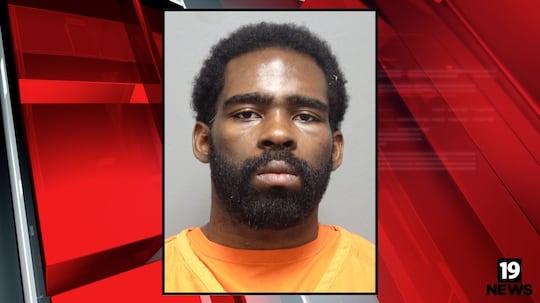The creeks around East Palestine, Ohio, were so badly contaminated by last year’s disastrous Norfolk Southern derailment that some workers became sick during the cleanup.
Workers who reported headaches and nausea — while shooting compressed air into the creek bed, which releases chemicals from the sediment and water — were sent back to their hotels to rest, according to a report obtained by The Associated Press about their illnesses.
The findings were not released to the public last spring, despite residents’ concerns about the potential health effects of exposure to the long list of chemicals that spilled and burned after the disaster. The workers’ symptoms, as described in the report, are consistent with what Centers for Disease Control and Prevention workers going door-to-door in town had reported shortly after the Feb. 3, 2023, derailment.
Read more: East Palestine, One Year After Train Derailment
Since then some residents have also reported unexplained rashes, asthma and other respiratory problems, and serious diseases including male breast cancer.
Researchers are still determining how many of those health problems can be linked to the derailment and how the disaster will impact the long-term health of residents in the area near the Ohio-Pennsylvania border. Many wonder whether there will be cancer clusters down the road, which of course won’t be clear for years.
In the meantime, residents have until Aug. 22 to decide whether to accept up to $25,000 — as part of a $600 million class action settlement with the railroad to compensate them for any future health problems. Accepting that money though means giving up the right to sue later, when the cost of health care coverage and specific treatments needed will become more clear.
Norfolk Southern spokesperson Heather Garcia said none of the workers who got sick during the cleanup “reported lingering or long-term symptoms.”
“The health and safety of our employees, contractors, and the community has been paramount throughout the recovery in East Palestine,” Garcia said.
The creek cleanup work continued, but nearly three weeks later, another worker got sick. This time, it was halted altogether. While there’ve been other cleanup projects since then, they’ve stopped using high-pressure air knife tools.
Independent toxicologist George Thompson who has been following the aftermath of the Ohio wreck said the cleanup contractors, overseen by the Environmental Protection Agency, should have known the work they were doing would release chemicals from the sediment into the air and water. In fact, that is what CTEH was monitoring while the project was underway. And with one of the main streams, Sulphur Run, going directly through town and in culverts under homes and offices, Thompson said those chemicals could have infiltrated buildings.
“You’re just spreading out the chemicals for exposure,” Thompson said. “And I just think that it was not an informed decision to use air knifing at all.”
Resident Jami Wallace said she lost her voice for two weeks after she got too close to one of the air knifing machines, which was placed near her driveway. She said when the machine was turned on, it felt like being hit by an invisible wall emitting a sweet chemical smell much like when the train derailed.
The report from CTEH was submitted to Unified Command, the group overseeing disaster response — which included federal, state and local officials along with Norfolk Southern — but no one released it despite significant public interest. CTEH’s principal toxicologist Paul Nony confirmed the report was given to the command center, and officials there were alerted about the illnesses.
When CDC workers got sick — also with headaches and nausea — it generated headlines nationwide.
East Palestine resident Misti Allison said not enough is being done to monitor long-term health effects on the community, and this report substantiates their health concerns. She said this report should have never been kept from the public.
“It’s absolutely egregious, and that shouldn’t happen. I think that any type of information like that — just like when the CDC workers came to the area and got sick — that should be disclosed instead of diminished,” Allison said. “Especially when it comes to human health, nothing should be swept under the rug.”
The East Palestine derailment that happened on the night of Feb. 3, 2023, was easily the worst rail disaster since a crude oil train leveled the small Canadian town of Lac Megantic and killed 47 people in 2013. It prompted a national reckoning with rail safety and calls for reform — although proposals for new industry rules have stalled in Congress.
Thirty-eight cars derailed, including 11 carrying hazardous materials such as butyl acrylate and vinyl chloride. After the crash, a fire burned for days. Fearing the five vinyl chloride cars would explode, officials then needlessly blew them open, and intentionally burned the toxic plastic ingredient.
That created a massive plume of thick black smoke over the area. The NTSB determined that the decision-makers that day never received the key opinion — that the cars were not likely to explode — from the chemical manufacturer.
The major freight railroads responded by pledging to add hundreds more trackside detectors nationwide to help spot mechanical problems. They also reevaluated the way they respond to alerts and even before alerts, the way they track rising temperatures from an overheating wheel bearing.
This summer’s completion of the NTSB investigation into the crash brought renewed hope that Congress might pass a rail safety bill, but little action has been taken outside of a House hearing on the subject last month.
CTEH said that its environmental testing around the creeks confirmed there were elevated levels of an assortment of chemicals in the air and sediment. Still, the group didn’t find either of the two chemicals of greatest concern: vinyl chloride or butyl acrylate. Sediment testing at nine locations along the creeks where cleanup workers reported strong odors did show 37 different chemical compounds that were primarily either hydrocarbons or polycyclic aromatic hydrocarbons.
Because of that, CTEH said it was clear that some of the contamination in the creeks came from industries that operated in the area years before the 2023 derailment. Still, those compounds could have also been created from chemicals burning after the train crash.
Nony, the head CTEH toxicologist, said that his company’s responsibility during the air knifing operation was primarily to monitor air quality.
The EPA has said that it doesn’t believe people are being exposed to any toxic chemicals on an ongoing basis because concerning levels of chemicals haven’t been found in their air and water tests since the evacuation order was lifted.
In follow-up testing this year, the agency did find small amounts of vinyl chloride and other chemicals at the crash site, but citing only small amounts and the fact that the contaminated soil was removed, the agency said they don’t represent a risk to human health.
The overall clean up effort in East Palestine is expected to be completed sometime later this year.










































